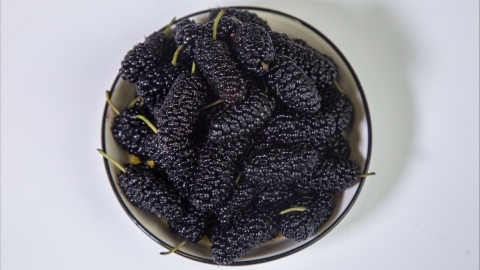Can dried mulberries treat liver and kidney deficiency?
Generally, dried mulberry fruit can serve as an adjunct in treating liver and kidney deficiency. The detailed explanation is as follows:

Liver and kidney deficiency is often caused by depletion of essence and blood and imbalance of yin and yang. It commonly manifests as symptoms including soreness and weakness of the lower back and knees, dizziness, tinnitus, and premature graying of hair. Dried mulberry fruit has a sweet and sour taste and is slightly cold in nature, acting on the liver and kidney meridians. It functions to nourish and support the liver and kidneys and to enrich essence and blood, making it particularly suitable for addressing the pathologic characteristics of liver and kidney deficiency. It helps alleviate various discomforts caused by such deficiency by nourishing liver and kidney yin, replenishing depleted essence and blood, and harmonizing the internal organs' yin-yang balance, thereby exerting an auxiliary improving effect. Moreover, dried mulberry fruit is rich in various amino acids, vitamins, and minerals, which provide essential nutritional support to liver and kidney tissues, helping maintain their normal physiological functions and indirectly assisting in improving the condition of liver and kidney deficiency.
Consumption of dried mulberry fruit should be moderated, as excessive intake may burden the spleen and stomach due to its cold nature, causing gastrointestinal discomfort such as abdominal distension and diarrhea. Individuals with spleen and stomach deficiency-cold should consume it cautiously to avoid exacerbating internal cold symptoms. As an adjunctive health supplement, it cannot replace medications for treating conditions related to liver and kidney deficiency. If symptoms are significant or persist, timely professional medical assistance should be sought, and standardized regulation should be conducted under medical guidance.






